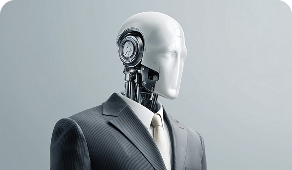How Culture Shapes Digital Transformation (Part 2)
“Life is an ongoing process of choosing between safety (out of fear and need for defense) and risk (for the sake of progress and growth). Make the growth choice a dozen times a day.”Abraham Maslow
In Part 1 of this series, we explored why so many digital transformation solutions fail. In Part 2, we dive into what may be the hardest barrier of all: digital transformation culture.
Technology can catalyze disruption. But culture determines whether organizations grow stronger or collapse under pressure.
Key Takeaways
-
Culture is the foundation of digital transformation. Without resiliency, projects collapse.
-
Generative AI accelerates disruption, forcing leadership to adapt faster.
-
Risk aversion and complacency undermine innovation and create fragility.
-
Building resilience takes discipline, discomfort, and long-term cultural change.
How Does Resilience Begin Inside Organizations?

Resilience begins with discipline. My day starts at 4:00 AM. Before most people are awake, I’ve already poured my coffee and sat down to read. For one to two hours, I move between four to six newspapers, picking up on topics that catch my attention. Sometimes it’s structured learning. Other times I let curiosity lead me. But every day begins with the act of acquiring new knowledge.
This ritual isn’t just about information. It sharpens my focus and strengthens my adaptability. And it mirrors what organizations must do if they want to thrive: make learning and growth a daily habit.
After reading, I train physically. Rowing, lifting, pushing until my lungs and legs scream to stop. The temptation to quit is constant. But the choice to push through builds resilience.
Corporations rarely condition themselves this way. Instead, they avoid discomfort until disruption forces it. Then they scramble, trying to run the marathon of transformation when they can’t even walk up the stairs without breathing hard. Growth requires discomfort, and culture often resists it.
What Makes Building Digital Transformation Culture So Hard?
Culture is difficult to change because it is invisible. Like people, organizations are wired to avoid pain. Quarterly numbers create the illusion of health, even when deeper issues go ignored.
Weak transformation cultures often reveal themselves when:
-
Middle managers guard their fiefdoms instead of enabling progress.
-
Senior leaders shy away from bold moves for fear of career risk.
-
Employees resist change because it feels unsafe and unfamiliar.
The paradox is that real growth comes from discomfort. But most organizations aren’t wired for it. They prefer stability, even though stability in a rapidly evolving business world is a false illusion.
As McKinsey reports, fewer than 30% of digital transformation projects succeed. The obstacle is rarely technology. It is cultural readiness.
What Can We Learn from Walgreens’ Transformation Struggles?
Walgreens offers a case study in cultural resistance. Its previous CIO attempted a sweeping transformation but went “too hard, too fast” and failed. His successor brought deeper corporate experience, but even with that, the odds are stacked against him.
Walgreens has stagnated into layers of managers, analysts, and bureaucracy. These layers insulate leadership from execution. They act as a corporate tax on progress, slowing down even the most well-intentioned initiatives.
Good engineers can often move things forward faster by speaking directly with business leaders. They understand both the want and the how. But when corporate structures add too many layers, progress grinds to a halt.
Now Generative AI has entered the scene. Strategic plans must be torn up. Cloud budgets skyrocket. Virtually every business process is impacted. Boards want change faster than culture can absorb.
The lesson: without a strong digital transformation culture, even companies with deep pockets and visionary plans will stall.
Why Has Interest in Transformation Risen but Success Stayed Low?
Searches for “digital transformation” have climbed for a decade, reflecting its importance in corporate strategy.

Source: Exploding Topics – Digital Transformation Statistics (2025)
Digital transformation is now on every board agenda. But rising attention doesn’t equal rising success. Companies underestimate the cultural transformation required.
Culture is the invisible hand that decides whether digital strategies thrive or fail.
How Does Generative AI Disrupt Culture and Workflows?
Generative AI has disrupted corporate playbooks. It doesn’t wait for leadership approval. Employees adopt AI tools on their own, automating tasks and reshaping workflows.
This grassroots adoption challenges leadership. Adaptive cultures embrace experimentation and grow stronger. Brittle cultures fracture under the pressure.
For more on resistance to change, read our blog on The Resistance.
How Does Risk Aversion Block Transformation Success?

Risk aversion is one of the most damaging cultural traits. Ironically, the leaders best positioned to drive transformation, those with experience, networks, and influence are often the most unwilling to take risks.
The paradox is clear:
-
Those most capable of leading, choose stability over disruption.
-
Stability becomes the enemy of resilience.
-
Momentum is lost before transformation begins.
As Maslow reminds us, growth is a daily choice. Organizations that choose safety too often end up stagnant.
Why Is Willpower Essential for Transformation Leaders?
As Jocko Willink once said:
“When your feelings are screaming that you've had enough, and when you think you're going to break emotionally, you've got to override that emotion with the concrete logic and willpower that says, ‘You know what? I. DON’T. STOP.’”
Transformation leaders must embody this mindset. Change is uncomfortable. Culture resists it. Willpower is what separates organizations that adapt from those that stagnate.
How Can Organizations Prepare Their Culture for AI and Analytics?
Organizations often pay lip service to AI and analytics. A CEO may launch a small analytics team to satisfy investors, but without cultural adoption, those efforts deliver little.
I’ve seen this firsthand. Engineers design better systems, but fail to consider human emotions. Change isn’t just about processes. It’s about people. Without empathy and preparation, resistance grows.
To build resilience, companies should:
-
Prepare employees psychologically before projects begin.
-
Promote a growth mindset across all levels.
-
Empower managers to champion, not block, transformation.
-
Tie AI projects to measurable outcomes.
Our RPI AI Course for Transformation Leaders provides practical guidance for embedding cultural readiness.
What Role Does Culture Play in Sustained Transformation?
Technology adoption is the easy part. Engineers can build elegant systems, but without cultural readiness, adoption fails.
The moral of the story: culture determines whether transformation sticks. Unless resilience is embedded in organizational DNA, transformation efforts will falter.
As argued in our blog, The Art of Corporate Innovation, lasting change is less about technology and more about shifting values, behaviors, and courage.
Start Reinforcing Culture Now
Building digital transformation culture is slow, difficult, and absolutely essential. Technology alone will not save an organization that is brittle at its core. As Generative AI accelerates disruption, culture is the deciding factor between thriving and falling behind.
Resilient organizations don’t wait until they’re forced into change. They prepare early, conditioning themselves with the same discipline an athlete uses to train for competition. They invest in people, cultivate growth mindsets, and embed adaptability into their DNA.
If your organization has not yet taken this introspective journey, now is the time. Every delay increases the cultural gap between where you are and where you need to be. The companies that win in the AI era will be those that act decisively and prepare their people for transformation.
Connect with us to begin your cultural transformation journey. Let’s build the resilience your business needs to not only survive disruption but to lead in it.
FAQs About Digital Transformation Culture
Still have questions? You’re not alone. Many leaders are asking the same things as they weigh how culture impacts their digital transformation journey. Here are some of the most common:
Q: What is digital transformation culture?
A: It is the values, mindsets, and behaviors that determine how effectively an organization adopts new technologies.
Q: Why is culture more important than technology in transformation?
A: Because even the best tools fail without cultural readiness. Resistance undermines adoption.
Q: How does Generative AI impact digital transformation culture?
A: It accelerates grassroots adoption, forcing organizations to adapt faster and exposing brittle cultures.
Q: How can leaders strengthen transformation culture?
A: By fostering resilience, rewarding long-term thinking, empowering managers, and preparing employees for change.












